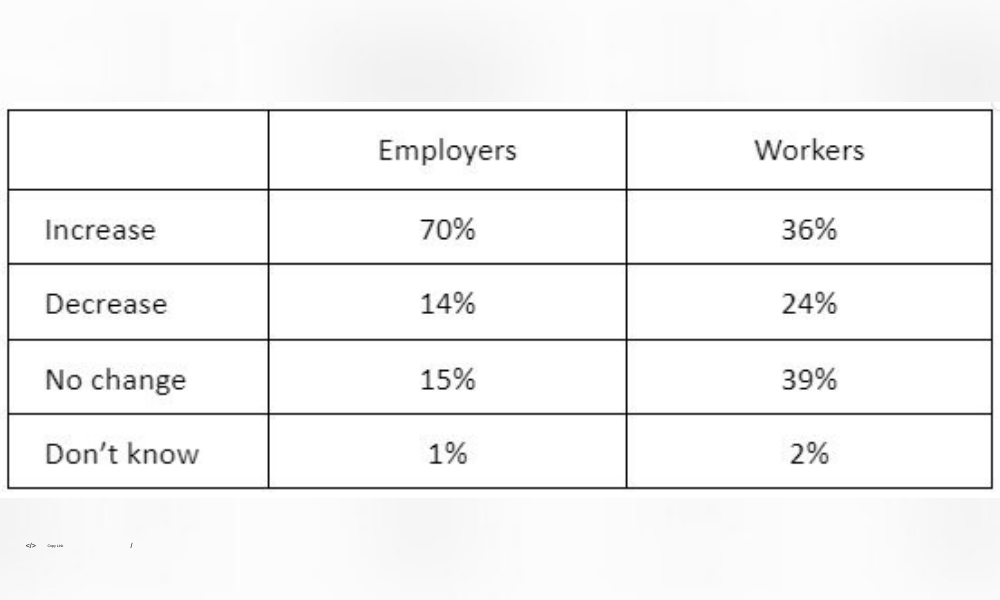
'The back-to-office transition has sparked discussions about optimal work environments,' says expert

In-office mandates are likely driving a disconnect around how employers and employees perceive productivity at New Zealand workplaces, according to a new report.
Seven in 10 employers in New Zealand said their productivity increased in the last 12 months.
But employees don't see it the same way, as only 36% said their productivity levels went up, according to the Robert Half report, which surveyed 250 hiring managers and 501 workers.

Source: Robert Half
Megan Alexander, Managing Director at Robert Half, attributed the situation to rising in-office mandates across New Zealand, which she said are fuelled by employers' desire to drive productivity.
"As in-office work arrangements are on the rise again across Kiwi businesses, employers likely attribute increased productivity to this model of working on site," Alexander said in a statement.
"But workers are not so sure. The back-to-office transition has sparked discussions about optimal work environments, with many employees finding offices less conducive to productivity."
Further reasons for employees' lower perception on productivity are restructuring and job cuts, which have been happening at numerous workplaces across New Zealand.
According to Alexander, restructuring and job cuts result in heavier workloads for remaining team members.
"Hiring temporary staff is a strategic short-term solution to alleviate workload, preventing burnout, and attrition during business changes," she said.
But sustainable productivity can only be driven by a balance between "operational efficiency and employee experience," according to Alexander.
"Business leaders need to strive to create a positive work environment that fosters collaboration while empowering their staff through autonomy and trust, and prioritising their overall wellbeing," she added.